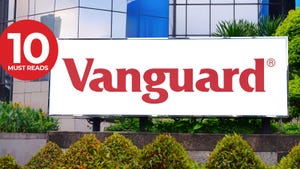11 Midweek Must Reads for Real Estate Investors (Aug. 23, 2023)11 Midweek Must Reads for Real Estate Investors (Aug. 23, 2023)
Rent growth is holding up much better for mid-market apartments vs. luxury units, reported CoStar. The Wall Street Journal looks at disappearing U.S. nursing homes. These are among today’s must reads from around the commercial real estate industry.
August 22, 2023

Blood on REITs’ Streets Could Signal Buying Opportunity “Year-to-date, the largest exchange traded fund dedicated to real estate investment trusts (REITs) is saddled with a small loss, while the S&P 500 is higher by about 15%. It’s just one example. However, it illustrates the point that many market participants are cautious, if not exceedingly bearish, on real estate equities. By virtue of real estate being the smallest sector weight in the S&P 500, novice investors may not be skittish about the sector’s lethargy. Conversely, REIT tea leaves are worth reading despite the sector’s diminutive status.” (Nasdaq.com)
The Upheaval at America’s Disappearing Nursing Homes, in Charts “America’s nursing homes are fading away. The U.S. has at least 600 fewer nursing homes than it did six years ago, according to a Wall Street Journal analysis of federal data. More senior care is happening at home, and the Covid-19 pandemic caused many families to shun nursing homes while draining workers from an already short-staffed industry. The result? Frail elderly patients are stuck in hospitals, a dangerous place for seniors, waiting for somewhere to go—sometimes for months. Beds are disappearing while the need for senior care is growing.” (The Wall Street Journal)
Rent Growth Holding Up Much Better for Mid-Priced, Three-Star Apartments “Mid-quality apartments, those scoring three stars in CoStar’s national buildings ratings system, regained the crown as rent growth leader at a time when an over-supply of higher quality units that were awarded four and five stars pushed rents in that segment into the red nationally.” (CoStar)
What to Know About China’s Real Estate Crisis “Tremors in China’s real estate market are shaking the country’s economy, as well as the world, which has come to rely on China as a reliable engine of growth. Major developers are faltering as they face huge losses, struggle with mountains of debt and miss payments to lenders. A long-running building boom that propelled China’s growth has come to a halt, threatening the jobs and savings of millions of households. China’s markets have tumbled and its currency has weakened as officials take action to spur growth.” (The New York Times)
SEC Charges Real Estate Investment Fund with Offering Fraud “The SEC’s complaint alleges that SC Development Fund, formerly known as SC Development Fund V LLC, was a real estate investment fund managed by Tseng and Zhang through Summitcrest, which they co-owned. As alleged, SC Development Fund sought investors for its unregistered offering from Chinese-speaking communities in the United States and China. According to the SEC’s complaint, SC Development Fund represented that it would use investor funds to make real-estate related loans “to the general public” and utilize income from these loans to make promised interest payments and return of capital to investors. The SEC alleges that contrary to these representations, SC Development Fund used investor funds exclusively for loans to Zhang’s real estate development and contracting business, and at least twelve other real estate development entities under Zhang’s control.” (The DI Wire)
Berkadia Study Argues CRE Lending Hasn’t Dried Up at All for Multifamily “Following three bank failures this spring, the general thesis among economists has been that commercial real estate has experienced a broad pullback in lending in 2023 — but not when it comes to one of the darlings of asset classes, says a team of capital markets experts at Berkadia. A review of commercial real estate loan data from the Federal Reserve and Real Capital Analytics found that multifamily lending in 2023 has remained steady relative to 2016 levels, and that smaller commercial banks are driving positive CRE lending activity across the country, as opposed to the nation’s 25 largest banks.” (Commercial Observer)
Schwab to Cut Staff, Real Estate to Save $500 Million a Year “Charles Schwab Corp. is planning to cut jobs and close or downsize offices to achieve at least $500 million in annual cost savings as the brokerage responds to investor pressure. The company will close or cut down on some real estate and reduce employee headcount, Westlake, Texas-based Schwab said Monday in a regulatory filing. Schwab said it will incur costs of roughly $400 million to $500 million, ‘primarily related to employee compensation and benefits and facility exit costs.’” (Bloomberg)
Real Estate Veteran Aims to Assist Minorities and Women in Cannabis Sector “On Wednesday, RLNTLSS Brands founder and President Gloria Govan announced her appointment as General Partner of Alta II, a real estate lender with the goal to provide innovative and efficient financing solutions to the cannabis sector—namely for minorities and women. Recent data shows that Black entrepreneurs represent a staggeringly low portion of cannabis business ownership, with similar shortcomings among women. Part of this challenge lies with the unique limitations imposed in the cannabis real estate industry.” (Forbes)
Casino Developers Are Funding Children’s Sports. Some Parents Object. “At a Coney Island park this summer, children in a basketball summer camp wore blue-and-white uniforms bearing the logo of “The Coney,” a proposed casino project in the neighborhood and the camp’s sponsor. A few months earlier on Long Island, where Las Vegas Sands is pitching a casino, children from local soccer teams were invited to a Sands-sponsored training session featuring the superstars David Beckham and Carli Lloyd. In the escalating race to be one of the first to open a casino in the New York City area, developers are rushing to win local support after state regulators said projects needed to be ‘embraced by the community.’” (The New York Times)
Mark Zuckerberg’s New ‘In-Person Policy’ Will Crack Down on Meta’s Remote Work Rebels “Mark Zuckerberg, once a champion of fully remote work, has doubled down on Meta’s crackdown on working from home—with the company threatening to discipline anyone who doesn’t abide by the looming rule changes.” (Fortune)
Solar Boom Spreads to Timberland and Self-Storage Rooftops “The U.S. solar boom has electricity producers popping up in unusual places: self-storage buildings, Southern pinelands, even outlet malls. Solar development has surged since last year’s climate and healthcare bill, which boosted tax breaks for renewable-energy projects. In the year since the bill became a law known as the Inflation Reduction Act, U.S. companies have announced plans for more than $100 billion of domestic projects, including solar installations, energy storage systems and panel factories, according to a report by the Solar Energy Industries Association and research firm Wood Mackenzie.” (The Wall Street Journal)
About the Author
You May Also Like





